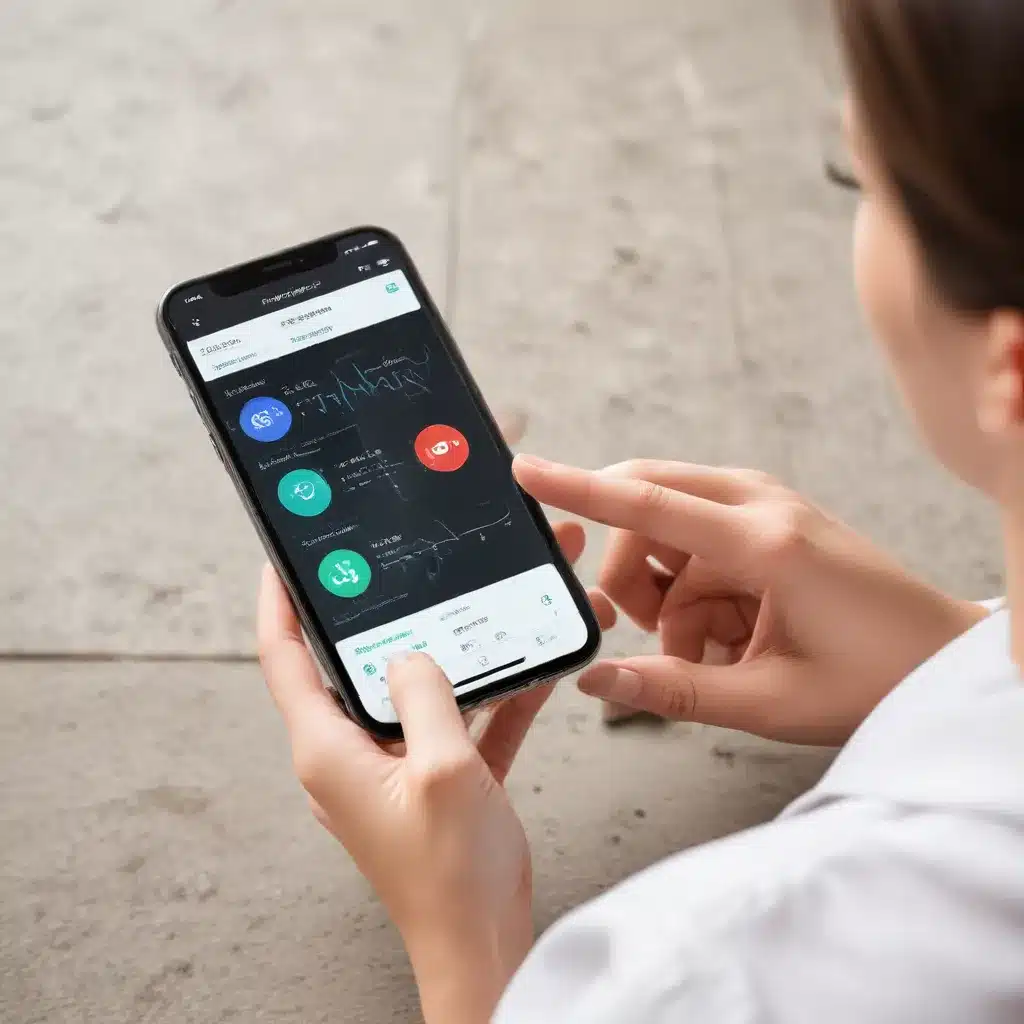
Effectiveness of Mobile App Interventions in Improving Health Behaviors and Outcomes
The Rise of mHealth Interventions
As mobile technology continues to expand, researchers have increasingly been utilizing mobile phones to conduct health interventions, known as mobile health (mHealth) interventions. The multiple features of mobile phones offer great opportunities to disseminate large-scale, cost-efficient, and tailored messages to participants. However, the results of mHealth interventions to date have been mixed, with a wide range of effect sizes reported (Cohen’s d from -0.62 to 1.65).
This inconsistency in the effectiveness of mHealth interventions highlights the need for a comprehensive meta-analysis to provide a clearer picture of their impact. A meta-analysis can calculate an overall effect magnitude for mHealth interventions compared to alternative interventions or conditions, as well as analyze potential moderators of their comparative efficacy.
Tapping into the Potential of Mobile Phones for Health
Mobile phones have become the most popular and widespread personal technology, with 95% of Americans owning a cell phone and 77% owning a smartphone. As mobile technology use has increased, public health professionals have begun to harness the multiple capabilities of mobile phones to serve a variety of health-related purposes.
mHealth interventions leverage the unique advantages of mobile phones, including:
- Widespread use: Mobile phones are ubiquitous across socioeconomic groups, allowing for large-scale reach.
- Cost-effectiveness: Mobile delivery channels are relatively inexpensive compared to traditional interventions.
- Tailored messaging: Mobile platforms enable the dissemination of personalized health information and reminders.
- Real-time engagement: Mobile features like SMS and apps allow for immediate interaction and behavior tracking.
mHealth interventions have been used to promote health behaviors, manage chronic conditions, and improve mental health outcomes. Approaches include utilizing SMS, mobile apps, social networking, and self-monitoring capabilities. However, the effectiveness of these interventions has been mixed, necessitating a deeper examination.
Calculating the Overall Effect of mHealth Interventions
To assess the comparative effectiveness of mHealth interventions, a meta-analysis was conducted across 64 studies totaling 6,348 participants. The analysis revealed a small but significant overall weighted effect size (Cohen’s d = 0.31), indicating that mHealth interventions are relatively more effective than comparison interventions or conditions in improving health outcomes.
This finding is consistent with previous meta-analyses focused on specific health issues, such as physical activity (Hedge’s g = 0.54) and diabetes management (mean 0.5% reduction in HbA1c). The meta-analysis extends existing research by examining the effects of mHealth interventions across a broad range of health contexts.
Identifying Key Moderators of mHealth Effectiveness
Beyond the overall effect, the meta-analysis also examined several potential moderators of mHealth intervention effectiveness:
-
Theoretical Paradigm: mHealth interventions grounded in both cognitive and behavioral theories (e.g., cognitive-behavioral therapy) demonstrated significantly higher effect sizes than those based on no theory or single behavioral or cognitive theories.
-
Engagement Types: mHealth interventions that included features for changing the user’s personal environment (e.g., providing soothing sounds) and reinforcement tracking exhibited larger effects. However, interventions with social presentation or announcement functions had smaller effects, potentially due to distraction.
-
Mobile Use Type: Combining SMS and mobile app features resulted in higher effectiveness compared to using only SMS or mobile apps.
-
Intervention Channel: mHealth interventions that incorporated other media channels (e.g., websites, emails) were more effective than those using mobile phones alone or combined with face-to-face components.
-
Follow-up Duration: Longer follow-up periods (up to 9 months) were associated with greater effects, highlighting the potential for mHealth interventions to maintain positive impacts over time.
These findings suggest that the design and implementation of mHealth interventions can significantly influence their comparative effectiveness. Integrating complementary cognitive and behavioral theories, leveraging personalized engagement features, and utilizing a multi-modal approach may help maximize the impact of mobile-based health programs.
Implications for Designing Effective mHealth Interventions
The meta-analysis provides several valuable insights for developing impactful mHealth interventions:
-
Leverage Cognitive-Behavioral Frameworks: Grounding interventions in both cognitive and behavioral theories can help bridge the gap between intention and actual behavior change, leading to more sustainable outcomes.
-
Prioritize Personalized Engagement: Enabling users to customize their environment and receive tailored reinforcement can enhance the relevance and effectiveness of mHealth programs.
-
Integrate Complementary Mobile Features: Combining the accessibility of SMS with the interactive capabilities of mobile apps can create a synergistic effect to boost user engagement and health outcomes.
-
Incorporate Diverse Media Channels: Supplementing mobile delivery with other media, such as websites and emails, can provide additional exposure and support behavior change through complementary strategies.
-
Sustain Long-Term Engagement: Leveraging the cost-effectiveness and ubiquity of mobile phones can help maintain positive health effects over extended periods, an important consideration for achieving lasting impact.
By applying these evidence-based design principles, public health practitioners and researchers can harness the potential of mobile technology to develop scalable, cost-effective, and impactful health interventions that improve behaviors and outcomes across diverse populations.
Conclusion
The comprehensive meta-analysis on mHealth interventions illuminates their considerable promise for promoting health behaviors and outcomes. With a small but significant overall effect size, mHealth approaches demonstrate relative effectiveness compared to alternative interventions. Moreover, the identification of key moderators, such as theoretical grounding, engagement features, and multi-modal delivery, provides valuable guidance for optimizing the design and implementation of future mobile-based health programs.
As mobile technology continues to expand, leveraging the unique capabilities of smartphones and tablets offers an exciting opportunity to enhance the reach, cost-efficiency, and personalization of public health initiatives. By applying the insights from this meta-analysis, practitioners can develop innovative mHealth interventions that empower individuals, support communities, and advance the health and well-being of populations worldwide.

